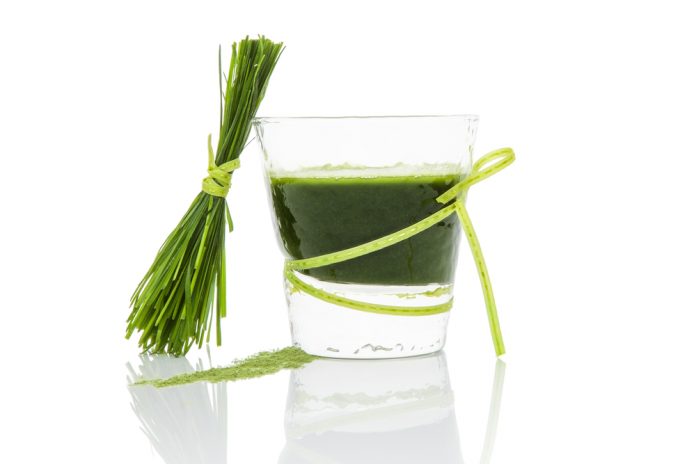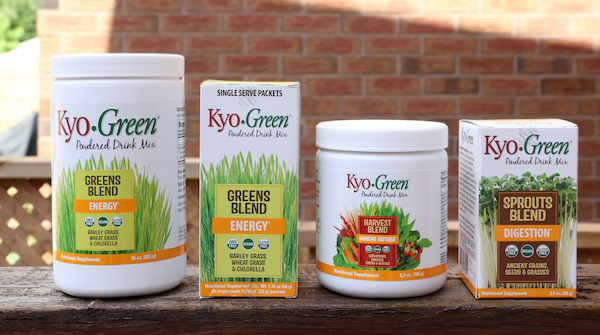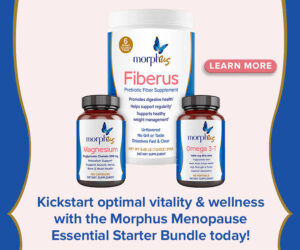
In the realm of superfoods, greens are especially known for their ability to enhance energy and provide a wealth of antioxidants. Who doesn’t need more vitality and disease-fighting help in their lives!
The types of greens we are talking about here don’t include kale, lettuce, arugula, and bok choy, although these are certainly both nutritious and delicious and should be a part of a healthy diet. No, we are going to talk about greens you won’t find in the produce section: barley and wheat grasses, chlorella, spirulina, and kelp, superfoods that are frequently overlooked yet are powerhouses when it comes to supporting and promoting energy and overall health.
The Super Powers of Grasses
Let’s begin with the grasses. Both barley grass and wheatgrass support immune function, are potent antioxidants and enhance energy. Wheatgrass (Triticum aestivum) is an excellent source of chlorophyll and can easily be grown at home. It contains 18 amino acids, vitamins A, C, and E, calcium, magnesium, and the master antioxidant, glutathione. One of the easiest ways to include wheatgrass in your diet is to add the juice to a smoothie. Other options include salad dressings, pesto, soups, and guacamole.
Barley grass (Hordeum vulgare) also provides chlorophyll as well as most of the B vitamins, beta-carotene, calcium, iron, magnesium, phosphorus, and potassium. One of its secret ingredients is superoxide dismutase, an enzyme that neutralizes disease-causing free radicals. Barley grass can be used similarly to wheatgrass in your diet.
The Super Powers of Chlorella
Chlorella is a blue-green one-celled microalgae that is a super source of amino acids, omega-3 fatty acids, potassium, phosphorus, biotin, magnesium, the B vitamins, beta-carotene, and chlorophyll. One ounce (about 3 tablespoons) of powdered chlorella provides 16 grams of protein, 287 percent RDA of vitamin A, 202 percent of iron, 133 percent of zinc, 71 percent of vitamin B2, 33 percent of vitamin B3, and 22 percent of magnesium.
Among the many health benefits of chlorella is an ability to attach to heavy metals (e.g., lead, mercury, cadmium) and prevent them from being absorbed by the body. These microalgae also promote healthy digestion, support immune function, and improve circulation, which supports heart health. Its anti-aging properties include an ability to reduce oxidative stress associated with aging and boost levels of vitamins A and C as well as glutathione, which help eliminate cell-damaging free radicals.
The Super Powers of Kelp
This sea green is a rich source of essential minerals that support a healthy thyroid and heart. Kelp, also known as brown algae, is a great source of iodine, minerals, fiber, proteins, antioxidants, and healthy carbohydrates. Intake of kelp has been associated with an improvement in diabetes, reduction in blood clots, and fighting hepatitis C.
When it comes to nutrition, kelp provides calcium, iodine, iron, magnesium, and potassium. These and other nutrients in kelp can protect the heart by reducing markers of heart disease, reducing oxidative stress, lowering blood pressure, decreasing blood clotting, and fighting inflammation of the blood vessels.
The Super Powers of Spirulina
Spirulina is a cyanobacterium, although it’s usually described as a blue-green algae. It contains chlorophyll, contains more than twice the protein found in red meat, and is a superb source of phytonutrients, B vitamins, copper, gamma-linolenic acid, iodine, iron, manganese, and potassium. Spirulina also helps eliminate toxins from the body. The phycocyanin in spirulina has anti-inflammatory powers as well. If you are in the market for something that lowers bad cholesterol, research has shown that one gram of spirulina daily for 12 weeks can lower both low-density lipoprotein cholesterol and triglycerides.
Superfood boosters
Here’s a list of foods that serve as boosters to help superfoods perform at their best. You can include these boosters in your diet or add them as a greens supplement that allows you to get all of the energy-and health-enhancing power in an easy to take capsule or powder.
Brown rice: This food is a good source of prebiotic fiber, which supports both cardiovascular and digestive health. One way it accomplishes these goals is by supporting and nourishing healthy gut bacteria. Brown rice also may help eliminate toxins from the body.
Chicory root: The roots of the chicory plant contain a water-soluble fiber called inulin, which is not digestible. Inulin is a FOS (fructooligosaccharides), which nourishes the beneficial bacteria in your gut. This in turn boosts the function of your immune and digestive systems. The prebiotic FOS also can be found in leeks, onions, bananas, garlic, and wheat.
Sprouted greens, grains, and legumes: These amazing foods are often overlooked and deserve a place in your diet. For example, sprouted grains contain more bioavailable nutrients than do more mature grains, according to Kristina Secinaro, a registered dietitian at Harvard-affiliated Beth Israel Deaconess Medical Center. Included in this nutrient list are folate, iron, magnesium, protein, vitamin C, and zinc. Sprouted grains also may be easier to digest than other grains and contain less starch. Similar findings are associated with sprouted greens and legumes.
Be sure to enjoy sprouted greens, grains, and legumes in soups, salads, and vegetable dishes. Add them at the end of cooking, however, because heating destroys the nutrients.
Other immune boosters. Nature provides us with a variety of vegetables, fruits, and herbs that are loaded with antioxidants and other nutrients that support and promote immune health and energy. These include plants, such as broccoli, green tea, berries, amaranth, chia, ginger, and quinoa, among others.
How to get your greens
As a rule of thumb, it’s always best to get nutrients from your diet. However, as we all know, that can be a challenge in today’s hectic world. Even the best diet can fall short because exposure to environmental toxins, stress, food additives, radiation, and other factors contribute to depleting the body of nutrients.
High-quality greens supplements that include sprouted greens and other natural ingredients such as chicory, brown rice, and an assortment of herbs, vegetables, and fruits that support immune function, heart health, and digestion are highly recommended.
One example of a supplement powder that hits all the right notes is Kyo-Green® Sprouts Blend, the only sprouted green supplement available on the market. Kyo-Green Greens Blend and Kyo-Green Harvest Blend are also excellent immune and energy boosters.
You can purchase Kyo-Green® on Amazon.com and Amazon.ca.
Greens supplements should be taken as stated on the label or according to your healthcare provider’s recommendations. Adding the power of greens to your diet can help you feel super!
Read next:
5 Spring Greens to Eat Before the Season Ends
DISCLAIMER: This article contains affiliate links, which means that if you click on one of the product links, Naturally Savvy will receive a small commission so we can keep pumping out amazing articles like this one. Thank you so much for your support!
Sources
Cardoso SM et al. Seaweeds as preventive agents for cardiovascular diseases: from nutrients to functional foods. Marine Drugs 2015; 13(11):6838-65.
Chow J. Probiotics and prebiotics: A brief overview. Journal of Renal Nutrition 2002; 12(2):76-86.
Godman H. Are sprouted grains more nutritious than regular whole grains? Harvard Medical School 2017 6 Nov
Koirala P et al. Recent advances in pharmacological research on Ecklonia species: a review. Archives of Pharmaceutical Research 2017; 40(9):981-1005.
Mazokopakis EE et al. The hypolipidaemic effects of Spirulina (Arthrospira platensis) supplementation in a Cretan population: a prospective study. Journal of the Science of Food and Agriculture 2014; 94(3):432-37.
Panahi Y et al. Investigation of the effects of Chlorella vulgaris supplementation on the modulation of oxidative stress in apparently healthy smokers. Clinical Laboratory 2013; 59(5-6): 579-87







